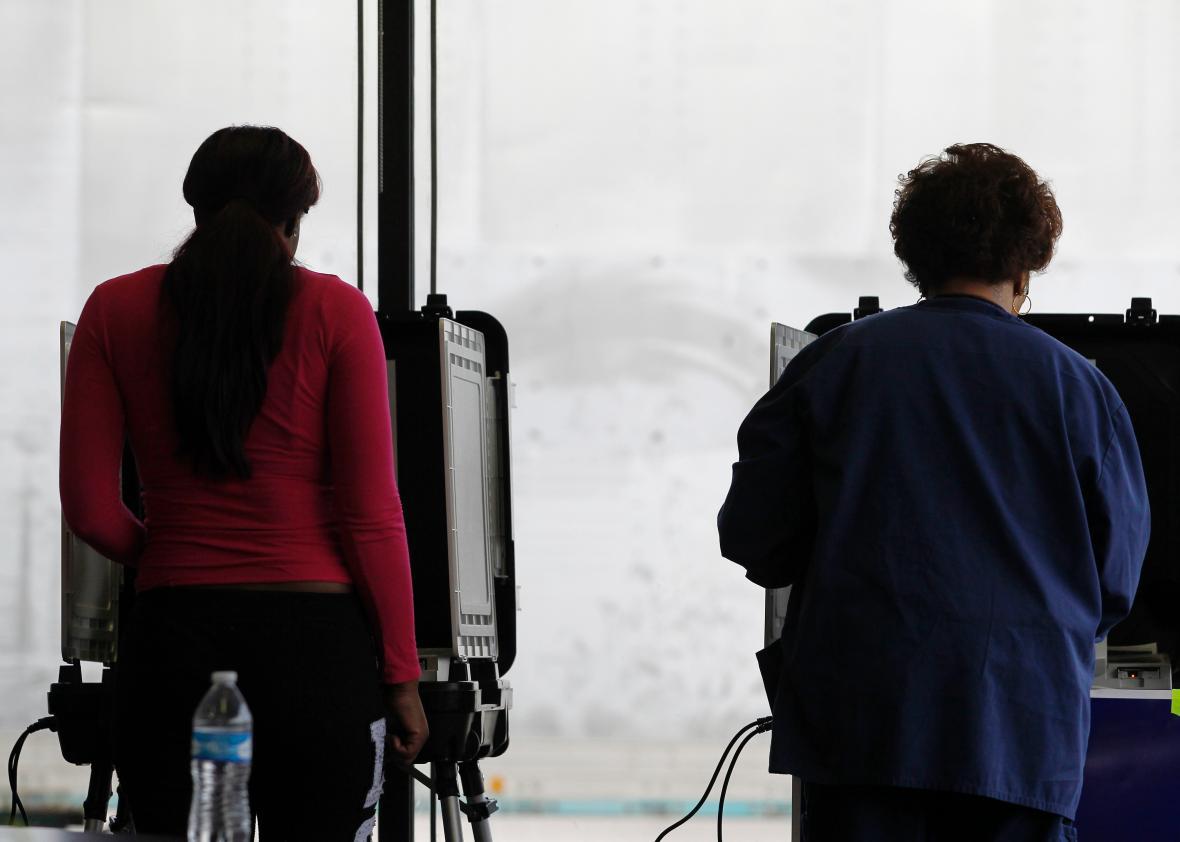Greetings, Future Tensers,
Though news this week may have been dominated by a look back at Russian interference in the 2016 presidential election, we at Future Tense have been looking ahead to how we might prepare for the next round of meddling, influence operations, and outright attacks on the systems that keep our country running.
Emefa Addo Agawu wrote for us about how Trump’s executive order on cybersecurity misses the enormous role state and local governments need to play. Care about the integrity of the systems that control water treatment, electricity, emergency services, and voting in your area? Then you should care that malicious actors are increasingly targeting them with ransomware and other hacking attempts. One way to defend against looming cyberattacks? Copper telephone wires and pneumatic water pumps! Jacob Brogan writes about how maintaining old technologies can protect us.
Of course, plenty of digital damage can be done without directly attacking physical infrastructure. Tim Hwang and Samuel Woolley explain the real-world threat of Twitter bots—from disrupting dissent to disseminating disinformation—and how the lack of transparency from social networks prevent the public from holding the perpetrators accountable. Before we break out the popcorn for Thursday’s blockbuster hearing with former FBI Director James Comey, we’re also rereading some particularly on-point pieces from our archives on how we can’t wait until the next election to fix our decrepit voting machines, how Russia hacked the American voters, and how the Kremlin’s failed French election hack should be considered a warning shot.
Plus, here are some other things we read while waiting for SCOTUS to decide whether police need a warrant to get our cell location data:
- Unpublic forum: ProPublica’s Charles Ornstein explains that Trump isn’t the only politician blocking dissenting constituents on Twitter—and how these digital cutoffs can be dangerous for democracy.
- Speak, cybernetic Fido: Ahead of a Future Tense event about dogs, Jacob Brogan delves into the philosophical questions behind whether we really want technology to tell us what our beloved pet companions are thinking.
- Siri, do I have Alzheimer’s?: Many of us have recognized the signs as our loved ones have progressed through a neurological disorder. Smartphone data could help those diagnoses come earlier.
- Turning up the heat: How the Weather Channel’s response to Trump’s Paris pullout presented some pitch-perfect righteous outrage.
- Bitcoin breakup?: David Z. Morris explains the long-running internal conflict that could cut the cryptocurrency in half.
- Smart-er speaker: Though Apple’s new HomePod may look like an overpriced Amazon Echo, Will Oremus writes that the company’s emphasis on design, privacy, and encryption could give their wireless device an edge.
Event:
Do you ever wonder what your dog really thinks of you? Bring your dog and join Future Tense at a happy hour conversation on June 14 in Washington, where we will explore what we know about how dogs think, how that informs their behavior, and their roles in our lives. RSVP to attend here.
Spouting some bourgeois science,
Kirsten Berg
for Future Tense
Future Tense is a partnership of Slate, New America, and Arizona State University.
